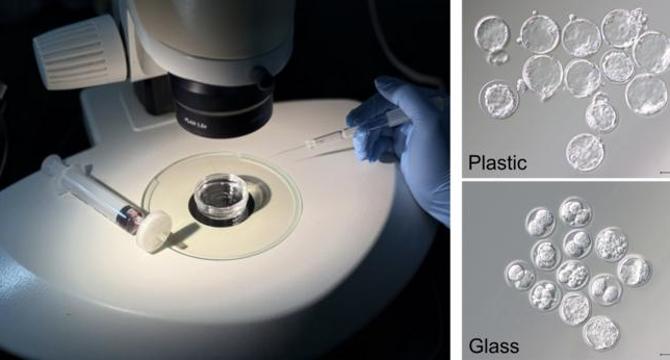Bioengineer
1d
11

Image Credit: Bioengineer
New Research Reveals Zinc Leaching from Glassware Impairs Embryo Development: Paving the Way for Safer, More Effective IVF Solutions
- New research has unveiled the detrimental effects of zinc leaching from glassware on embryo development in assisted reproductive technology, potentially influencing declining IVF success rates.
- Zinc toxicity from glassware hinders proper embryo maturation, leading to abnormal structures and reduced blastocyst formation.
- Introducing chelating agents like EDTA into culture mediums shows promise in mitigating zinc's negative impacts on embryonic outcomes.
- The study underscores the need for continuous evaluation of materials used in embryo culture, urging a shift toward safer alternatives in IVF procedures.
- Implications extend beyond human reproduction to animal breeding, emphasizing the responsibility to handle materials affecting reproductive cells across species.
- Interdisciplinary collaboration and innovative glassware design could pave the way for safer and more effective assisted reproduction techniques.
- The research highlights the importance of revisiting established practices in reproductive medicine to enhance IVF treatment outcomes and embryo viability.
- By addressing glassware-related risks and leveraging scientific advancements, practitioners can strive to improve the safety and success of assisted reproductive technologies.
- This study signifies a shift toward a future where advancements in embryology research offer new possibilities for enhancing reproductive health outcomes.
- The ongoing journey to understand and optimize embryo development is strengthened by these breakthroughs, calling for continued engagement and informed practices in the field.
Read Full Article
Like
For uninterrupted reading, download the app